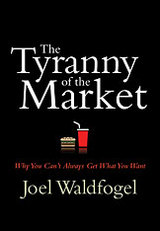

Unlike the papers of some other great economists, those of Kenneth Arrow are being read and studied today with even greater care and attention than when they first appeared in the journals. The publication of his collected papers will therefore be welcomed by economists and other social scientists and in particular by graduate students, who can draw from them the deep knowledge and the discernment in selection of scientific problems that only a master can offer. The author has added headnotes to certain well-known papers, describing how he came to write them.
The third volume of Kenneth Arrow's Collected Papers concerns the basic concept of rationality as it applies to an economic decision maker. In particular, it addresses the problem of choice faced by consumers in a multicommodity world and presents specific models of choice useful in economic analysis. It also discusses choice models under uncertainty, giving the basic theory and critiques of this theory based on experimental evidence and applications. Among the major papers are "Alternative Approaches to the Theory of Choice in Risk-Taking Situations," a masterly survey of subjective probability and choice theory, and "The Theory of Risk Aversion," an exposition of the theory of choice under uncertainty.

Elizabeth Zanoni provides a cutting-edge comparative look at Italian people and products on the move between 1880 and 1940. Concentrating on foodstuffs—a trade dominated by Italian entrepreneurs in New York and Buenos Aires—Zanoni reveals how consumption of these increasingly global imports affected consumer habits and identities and sparked changing and competing connections between gender, nationality, and ethnicity. Women in particular—by tradition tasked with buying and preparing food—had complex interactions that influenced both global trade and their community economies. Zanoni conveys the complicated and often fraught values and meanings that surrounded food, meals, and shopping.
A groundbreaking interdisciplinary study, Migrant Marketplaces offers a new perspective on the linkages between migration and trade that helped define globalization in the late nineteenth and early twentieth centuries.

Seldom considered is whether markets do an adequate job of shaping our tastes. David George argues that they do not, and that the standard economic definition of efficiency can be used to demonstrate that the market ignores people's desires about their desires. He concludes that markets perform poorly with respect to second-order preferences, thus worsening the problem of undesired desires. The book further investigates changes in perceptions and public policy toward such activities as gambling, credit, entertainment, and sexual behavior.
David George is Chair and Professor Economics, LaSalle University.

Police put Eric Garner in a fatal chokehold for selling cigarettes on a New York City street corner. George Floyd was killed by police outside a store in Minneapolis known as “the best place to buy menthols.” Black smokers overwhelmingly prefer menthol brands such as Kool, Salem, and Newport. All of this is no coincidence. The disproportionate Black deaths and cries of “I can’t breathe” that ring out in our era—because of police violence, COVID-19, or menthol smoking—are intimately connected to a post-1960s history of race and exploitation.
In Pushing Cool, Keith Wailoo tells the intricate and poignant story of menthol cigarettes for the first time. He pulls back the curtain to reveal the hidden persuaders who shaped menthol buying habits and racial markets across America: the world of tobacco marketers, consultants, psychologists, and social scientists, as well as Black lawmakers and civic groups including the NAACP. Today most Black smokers buy menthols, and calls to prohibit their circulation hinge on a history of the industry’s targeted racial marketing. In 2009, when Congress banned flavored cigarettes as criminal enticements to encourage youth smoking, menthol cigarettes were also slated to be banned. Through a detailed study of internal tobacco industry documents, Wailoo exposes why they weren’t and how they remain so popular with Black smokers.

Economists have long counseled reliance on markets rather than on government to decide a wide range of questions, in part because allocation through voting can give rise to a "tyranny of the majority." Markets, by contrast, are believed to make products available to suit any individual, regardless of what others want. But the argument is not generally correct. In markets, you can't always get what you want. This book explores why this is so and its consequences for consumers with atypical preferences.
When fixed costs are substantial, markets provide only products desired by large concentrations of people. As a result, people are better off in their capacity as consumers when more fellow consumers share their product preferences. Small groups of consumers with less prevalent tastes, such as blacks, Hispanics, people with rare diseases, and people living in remote areas, find less satisfaction in markets. In some cases, an actual tyranny of the majority occurs in product markets. A single product can suit one group or another. If one group is larger, the product is targeted to the larger group, making them better off and others worse off.
The book illustrates these phenomena with evidence from a variety of industries such as restaurants, air travel, pharmaceuticals, and the media, including radio broadcasting, newspapers, television, bookstores, libraries, and the Internet.
READERS
Browse our collection.
PUBLISHERS
See BiblioVault's publisher services.
STUDENT SERVICES
Files for college accessibility offices.
UChicago Accessibility Resources
home | accessibility | search | about | contact us
BiblioVault ® 2001 - 2024
The University of Chicago Press









